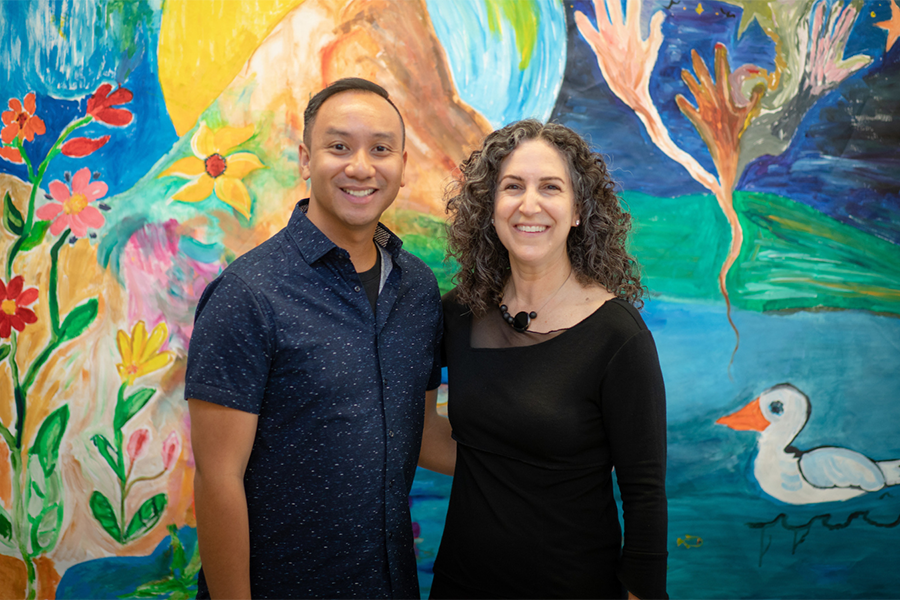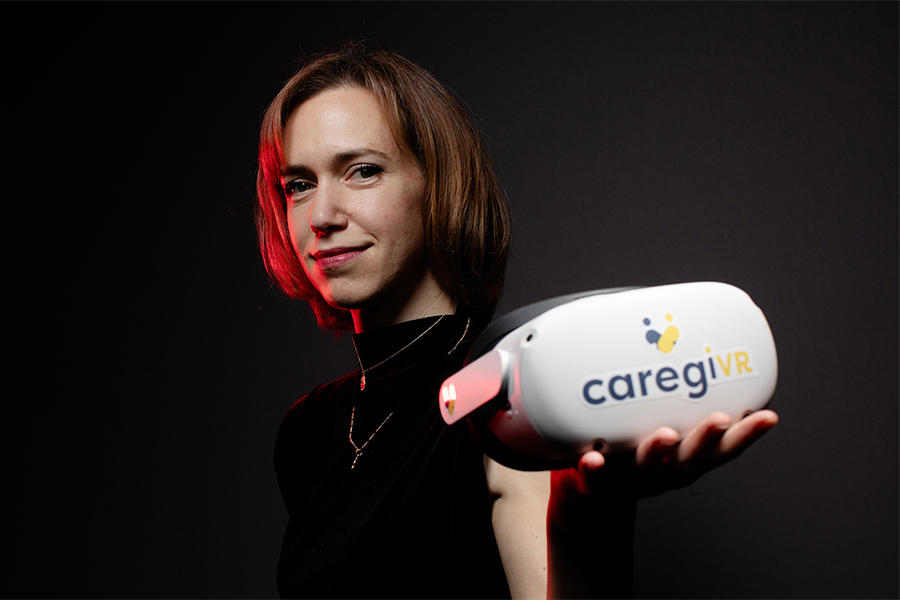Shannon Reid, (R), is a certified Gentle Persuasive Approaches coach. Here, she reviews course material with Mary-Anne Garcia, a recreation therapist on Toronto Rehab’s Specialized Dementia Unit. (Photo: UHN)
Shannon Reid is helping to continue bringing patient-centred care to the forefront of Toronto Rehab‘s Specialized Dementia Unit (SDU).
An Advanced Practice Leader for the SDU, Shannon became a certified coach in 2021 to lead a practical dementia education program for staff. She now leads Gentle Persuasive Approaches (GPA) training on the SDU, and other programs across Toronto Rehab’s University Centre, to provide staff with the knowledge, skills and confidence they need to deliver exceptional patient care.
“Dementia changes how a person experiences the world,” says Shannon. “It impacts many different things, such as memory and judgement, which can result in the responsive behaviours we see on the SDU, including pacing, restlessness, repetitive questions and physical aggression.”
The ultimate goal of GPA training, which is designed for all frontline interdisciplinary team members, is to understand each person with dementia as a unique human being.
“The curriculum includes gentle physical redirection techniques our staff can apply, to help deter patients from unsafe situations or altercations,” says Shannon.
These techniques include gentle physical techniques to remove a patient from an unsafe situation such as an altercation with a co-patient, and self-protective techniques for staff to use if they are being grabbed, kicked or pinched by a patient.
The evidence-based course focuses on promoting personhood, explaining the different damages to the brain caused by dementia and identifying strategies that can be used to support patients. It emphasizes that there is meaning behind each behavioural response, and that these responses are the result of an unmet need.
“It’s an extremely practical course that offers real strategies my team and I can use on a daily basis,” says Shannon.
‘Helps us gain a better understanding of a person outside of their diagnosis’
The learning is comprehensive and accessible for staff with different learning styles, and is comprised of videos, auditory learning components and hands-on activities, such as small group learning and role playing.
Mary-Anne Garcia, a recreation therapist at Toronto Rehab’s SDU, says the GPA course has improved the way she builds trust and rapport with patients
“GPA teaches you that personhood-promoting interactions not only help in the moment, but also help patients living with dementia feel safe with you,” says Mary-Anne.
“A patient may be very upset and tearful, and sometimes providing validation and reassurance is all they need. The way we interact and communicate with them is key, whether that’s validating their emotions, actively listening or spending one-on-one one time with them.”
Toronto Rehab plans to have an additional Advanced Practice Lead certified to provide GPA training, as the course is expanded to other programs within the hospital, to ensure patient needs are aligned with staff expertise.
“The training is beneficial for all staff because it helps us gain a better understanding of a person outside of their diagnosis,” says Mary-Anne.
“It allows everyone to work collaboratively as a team and ensure we are on the same page when providing quality care.”



